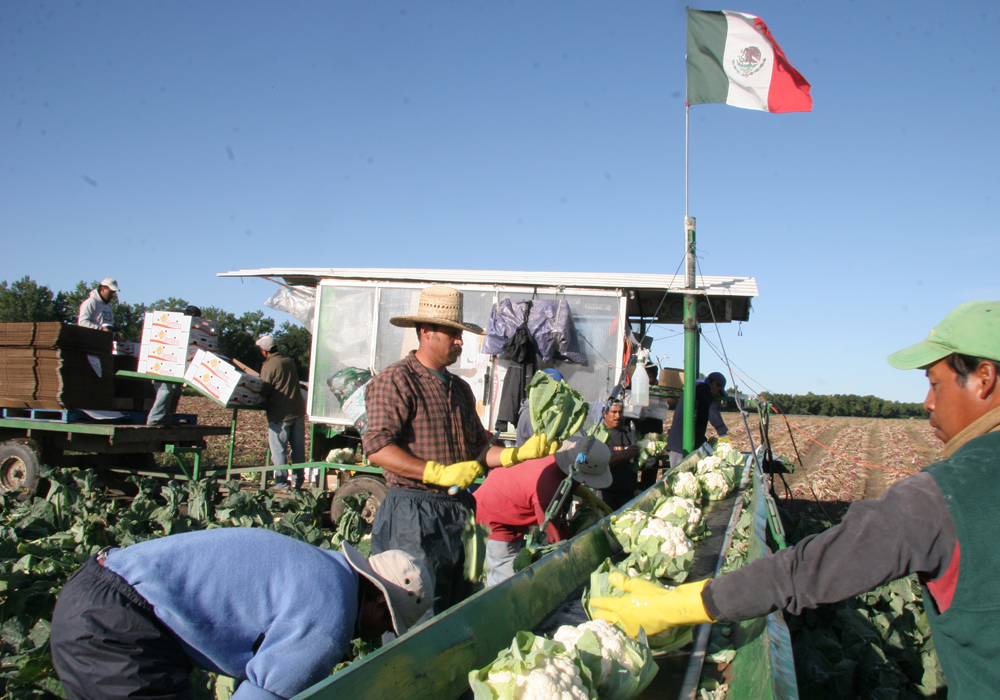Now is the time for the Canadian government to overhaul the country’s foreign worker program.
It is the right thing to do and will benefit Canadian agriculture.
The COVID-19 pandemic has highlighted the shortcomings of the current program, which sees thousands of people come to Canada each year to work on farms.
Foreign farm workers in several provinces fell ill from the virus, and three migrant employees have died. That brought negative attention to a system that was already looked upon poorly by many, despite those in the agricultural world maintaining the majority of workers arriving in Canada are treated fairly.
Even if that is the case, stories emerging highlighting the poor conditions of migrant workers should prompt significant action from government.
One bad apple is too many.
At the end of July, Luis Gabriel Flores Flores, a 36-year-old from Mexico City in Canada via the Seasonal Agricultural Worker Program (SAWP), detailed his story in a letter to Minister of Immigration, Refugees and Citizenship Marco Mendicino.
Flores has worked in Canada for four seasons, and wrote about his recent experiences working on an Ontario farm during the pandemic.
“When we first arrived, we were taken to a hotel to quarantine for two weeks. Once we got to work, I saw that the housing conditions were very bad. The houses were in poor condition, communal bathrooms shared by many workers and in unsanitary condition, and household items in very poor condition. There was very little space in the rooms and in the houses; it was impossible to keep distance.”
Flores detailed how he was pressured to work long hours “as if we were slaves” and never given an opportunity to rest.
“The employer never gave us protective gear — no gloves, no masks, no antibacterial gel. This situation created the perfect conditions for the COVID-19 outbreak that made us ill,” he said.
One of his colleagues, Juan López Chaparro, eventually died of the virus. After speaking out to national media, Flores writes he was told he would be deported back to Mexico for doing so by the farm’s owner.
“What happened to me is what happens to migrant workers when they try to defend their rights. We have been subjected to a system of temporary immigration where if we stand up for ourselves, we are deported. We need a comprehensive immigration solution in order for our rights to be respected. We spend most of the year in Canada, more time than we spend home with our families,” his letter reads. “We are an essential part of this economy and society and we deserve the same rights. We should be treated with equality and respect. That is why we need permanent resident status now, so workers can have the power to protect ourselves. Our health, our well-being, our families, and our lives depend on it.”
The arguments he makes are largely backed up by a recent report coming out of the University of Calgary. Its author, Robert Falconer, suggests failing to better protect foreign workers could result in more expensive food.
To prevent that, he highlights some ways of improving the system — including giving foreign workers access to Employment Insurance, improving on-farm enforcement of the rules and allowing these workers a better path to citizenship.
Given the importance these workers have to Canadian agriculture, isn’t it a no-brainer that we should offer them the same rights and benefits of Canadian workers?
While a recently announced three-year pilot program aimed at providing permanent residency to seasonal workers with one year of experience working in Canada is a good start, stories like Flores’ and reports like Falconer’s should prompt more substantive changes.
D.C. Fraser is Glacier Farm Media’s Ottawa correspondent. Reach out to him by emailing dfraser@farmmedia.com.
















































